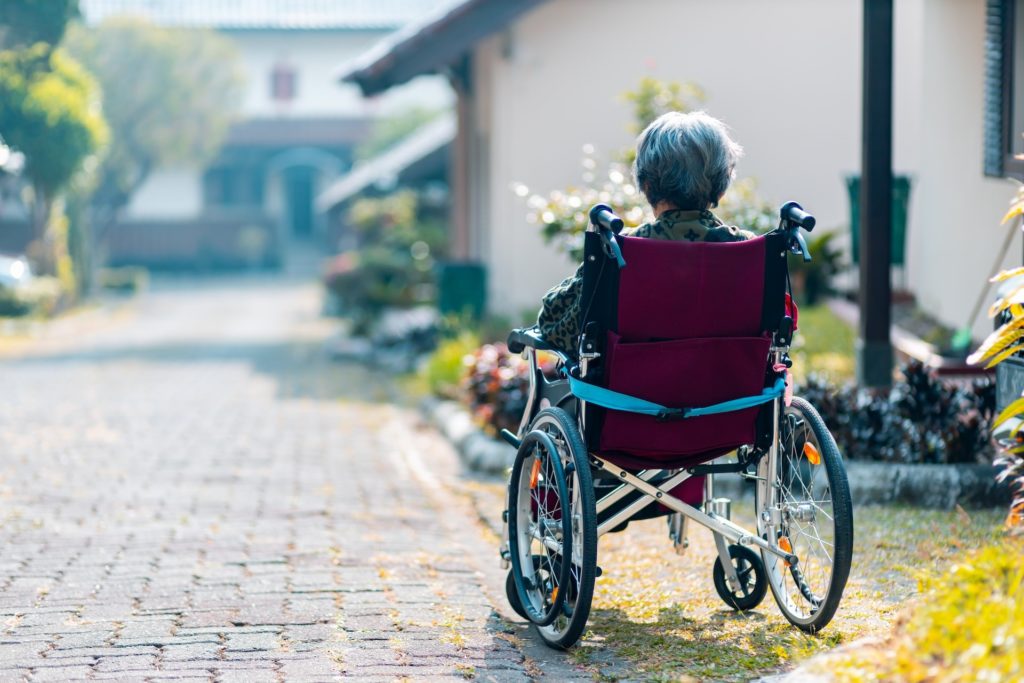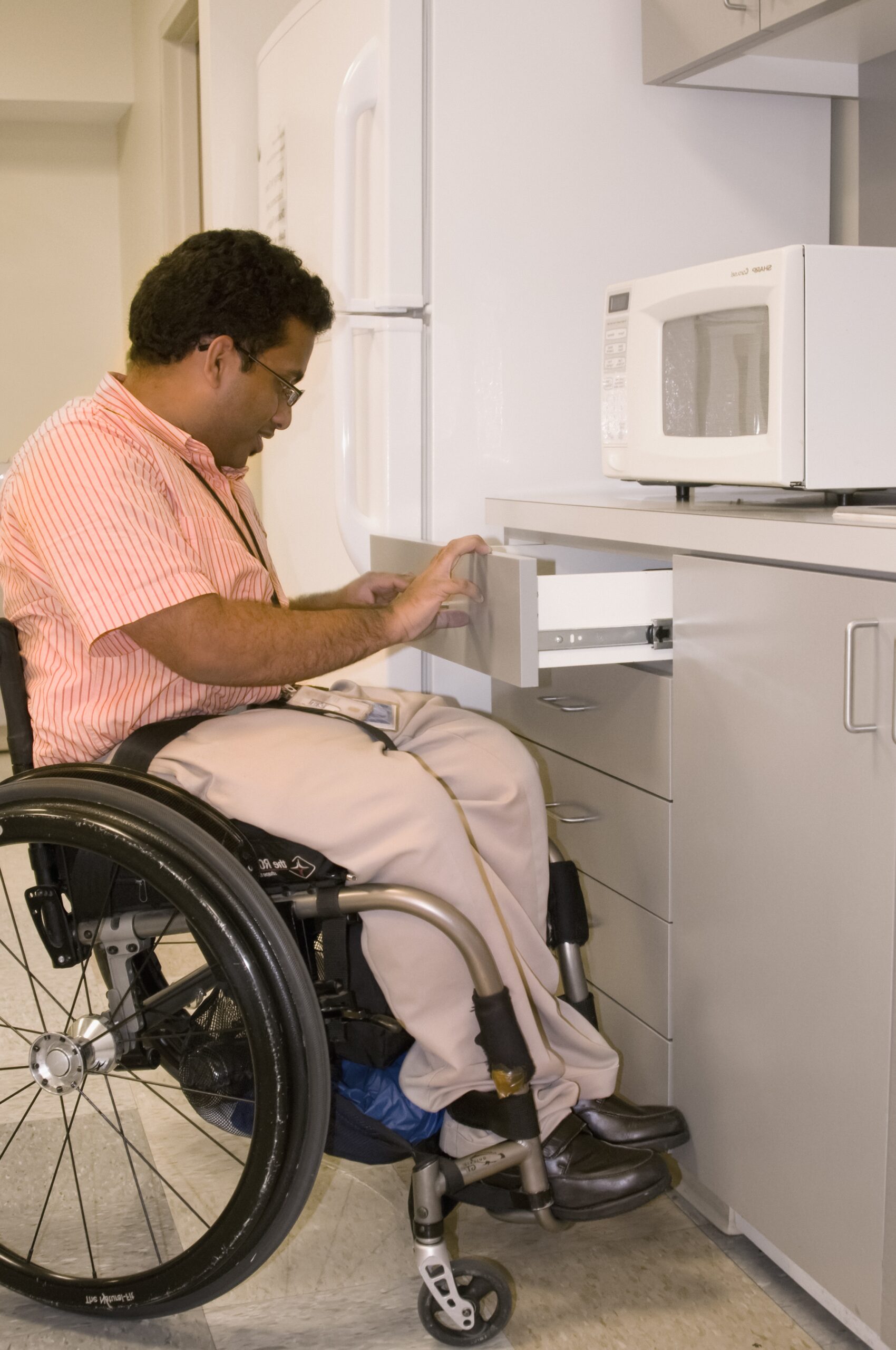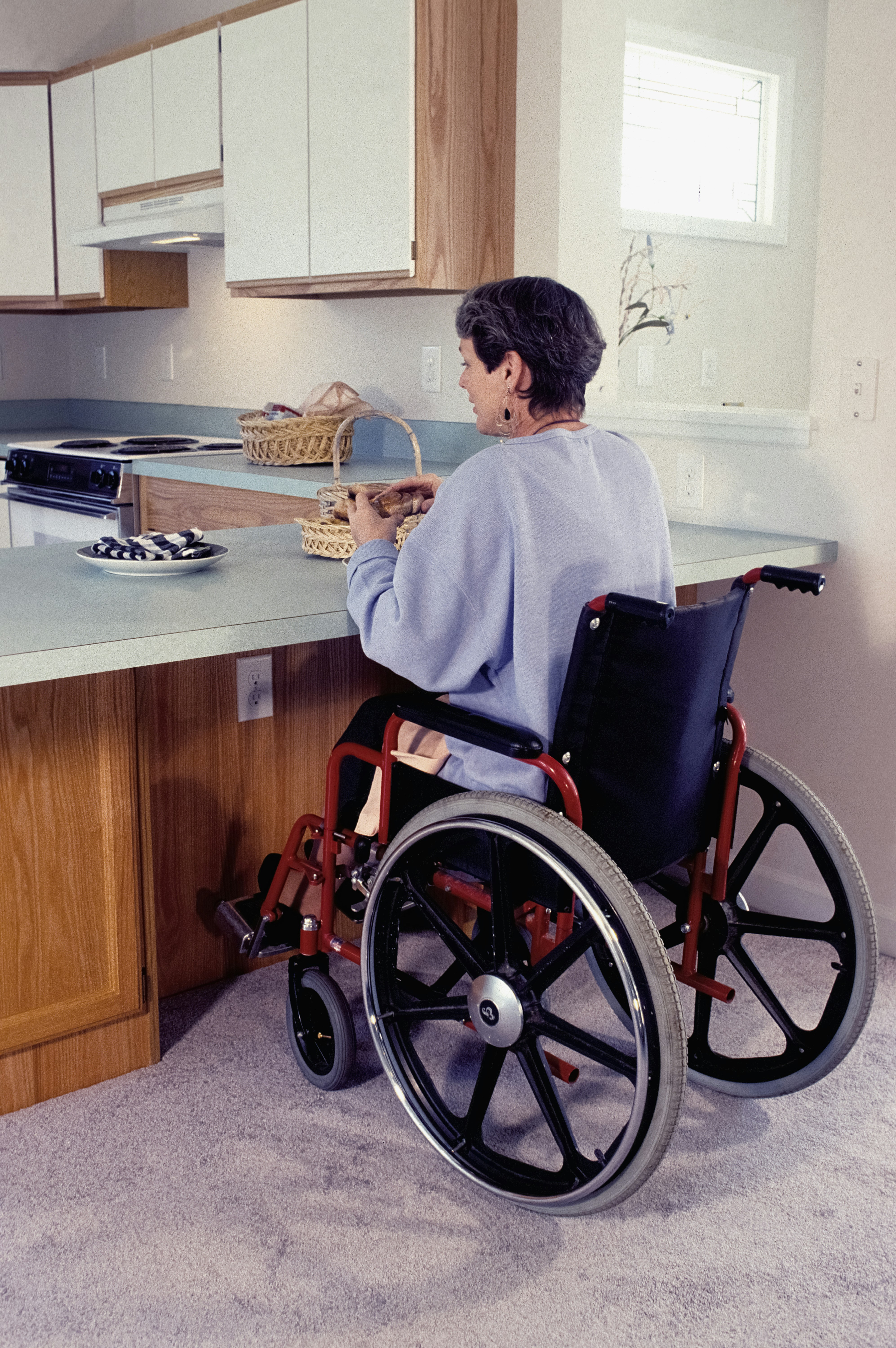
Making your home more accessible is an essential part of making your life more comfortable and easier. In this blog, we discuss the steps you can take towards more accessibility and who will benefit from it. So, how can you make your home more accessible?
To make your home more accessible, allow a clear path for walking or wheelchair access, add phones or alert systems to each room of the house and add a ramp or lift to access the building. Ensure that each room and the exterior of the building is well lit to minimise falls or slips.
Read on to find out more about the steps you can take to make your home more accessible for yourself or a family member.
How to Make Your Home More Accessible
There are many steps you can take to make your home more accessible for yourself or your loved ones. Whether it’s for a recent injury, a pre-existing medical condition or other problems with mobility, accessibility is one very important aspect of feeling comfortable in your home. Follow our steps below to make your home a more convenient space to live.

Clear Space
Start by thinking about your daily activities and how the layout of your home affects them. Even small tasks such as eating breakfast or daily stretches can be hindered by a messy environment. If you or your loved one requires mobility support such as a wheelchair, ensure there is nothing directly blocking the range of motion. The standard widths for such support is:
- 36″ for hallways
- 32″ for doorways
- Minimum clearance for 180 degree turns is 36” in all directions
Lighting
Anyone that has limited mobility benefits from clear sight to minimise the risk of injury or falls. All hallways, rooms and the exterior of the building should have appropriate lighting during evenings, nights and early mornings. This can help you or your loved one move around as safely as possible.
Ramps/Lifts
Ramps and lifts are a simple but potentially costly way to make your home more accessible should your needs require it. If your home is all on one level then you shouldn’t have to worry about replacing stairs with a lift or ramp. However, consider whether the exterior of your building is accessible for your needs. You can find all-weather ramps to allow ease of access to your property without the danger of slipping or falling.
Security
This is a highly important step to feeling comfortable in your home, especially where movement is limited or slowed. Install a phone or alert system in as many rooms in the house as possible to allow fast contact with emergency services or carers. Make sure to regularly check any alarms or systems for faults and check the volume is loud enough to hear. A pendant alarm or watch system should be used in case of emergency – look for one with a fall sensor.
An external camera system or motion sensor light adds another layer of protection to your home. Also, consider adding a doorbell cam so you can see and communicate with a visitor before giving them access to your home.
Rooms

Here are some suggestions for making specific rooms accessible in your home:
- Bedroom – Phone/alert system right next to the bed and a floor-standing hoist to transfer in and out of bed. For any medical needs, having medicine or pain relief nearby is a good option (where safe).
- Bathroom – Grab rails in the tub and shower with 36″ clearance and another one next to the toilet. A bathtub or commode lift if necessary. Also, consider a walk in shower for ease of access
- Kitchen – Wheelchair-accessible countertop and cabinet height. Table 27″ floor-to-table height and 30″ x 48″ seat spacing.
- Garage – Garage entry/interior door ramp for safe, quick car access. Wheelchair-accessible floor area for easy car loading/unloading.
Who Would Benefit from Better Accessibility?
According to Holly Holder (Housing Made for Everyone), “Homes with higher accessibility standards benefit everyone, particularly disabled people and older people, and disadvantage no one.” This also includes any carers that need to access the building to properly perform their role. If clients have a comfortable and accessible home to live in, completing daily tasks with the help of a live-in or overnight carer will be easier.
High-Quality Care at Rivendell Care
At Rivendell Care, we truly believe in the importance of feeling comfortable in your own home. This is why our expert carers come to you. If you need more advice on making your home more accessible for yourself or a loved one, please reach out to our team. This can start with our complimentary home care assessment, so why not book one today.

Resources:
https://www.disabled-world.com
https://www.habinteg.org.uk/wheelchair-accessible-housing

